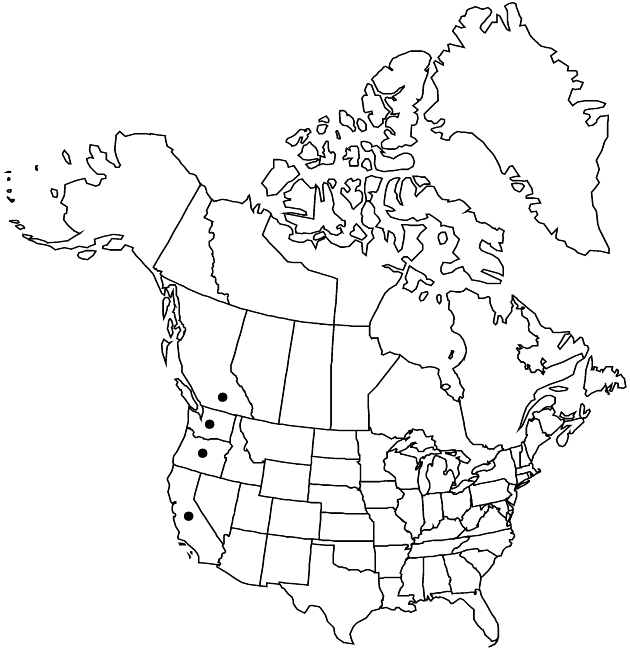Gamochaeta ustulata
Folia Geobot. Phytotax. 11: 83. 1976.
Annuals, biennials, or perennials, 10–40 cm; fibrous-rooted. Stems erect to ascending (commonly decumbent-ascending and rhizome like), densely white-pannose. Leaves basal and cauline, basal usually withering before flowering, blades spatulate to oblanceolate, 2–5 cm × 6–12 (–35) mm (little smaller distally), faces bicolor, abaxial white-pannose, adaxial sparsely to densely arachnose-tomentose. Heads in usually continuous, rarely interrupted (proximally), cylindric arrays 1–6 (–8+) cm × 12–18 mm (pressed). Involucres campanulo-urceolate, 4.5–5 mm, bases sparsely arachnose. Phyllaries in 4–6 series, outer (brown or greenish brown) broadly ovate-triangular, lengths ca. 1/2 inner, apices acute to acute-acuminate (mid phyllaries ± keeled near apices), inner oblong, laminae usually dark-brown, sometimes purplish (at stereome-lamina junction), apices rounded to obtuse, apiculate. Florets: bisexual (3–) 4–6; all corollas usually yellowish, sometimes purplish distally. Cypselae (tan to brownish) 0.7–0.8 mm.
Phenology: Flowering Apr–Jul(–Oct).
Habitat: Mostly coastal and near-coastal sites, dunes, ocean bluffs, sandy fields, and roadsides, clay-loam, roadcuts, ditches, cliffs, pine woods, chaparral slopes, tidal marsh edges
Elevation: 0–700(–1100) m
Distribution

B.C., Calif., Oreg., Wash.
Discussion
Gamochaeta ustulata usually has been included in G. purpurea; it differs mostly in its longer duration, thicker and shorter stems, larger, more compact arrays of larger, brown heads, and aspects of phyllary morphology.
Selected References
None.